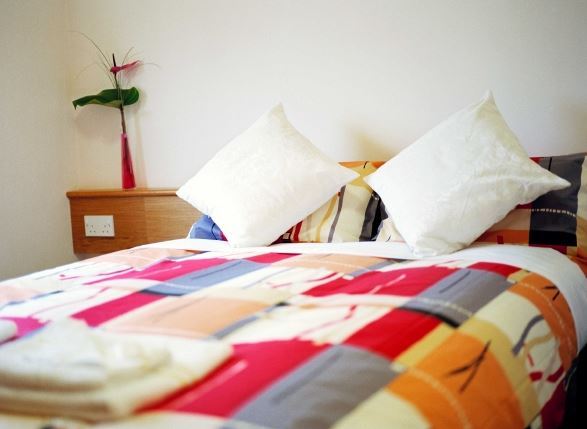Students at Dublin City University (DCU) can avail of a new flexible housing system for the upcoming academic year.
The university says it is highly unlikely that any student would need to be on campus for more than a small number of days per week, so the accommodation requirements will be very different.
DCU President Professor Brian MacCraith told Sean Moncrieff that on-campus accommodation will have to 'change considerably'.
"We've been talking to students and consulting with parents and focus groups for the past few weeks.
"It's becoming very obvious that there needs to be a new model, so we've established one.
"Not all students will be on campus at the same time - and for a typical student, they might be on campus for up to two days a week.
"So the normal model of student accommodation just wouldn't work, so we asked our accommodation centre in the university to come up with a new model."
The new model will see students able to book individual nights of accommodation.
"Students can book for one night, a couple of nights, a week - so it's much more hotel-like or hostel-like in its design.
"It really has adapted very well to, hopefully, the temporary new reality for our students.
"And it appears to have landed very well with students and their parents because it's so flexible."
 An example of a bedroom in DCU campus accommodation. Picture by: DCU
An example of a bedroom in DCU campus accommodation. Picture by: DCU"It's got added complexity to it, but we think it's the right thing to do at this time to accommodate students concerns, and that's reflected in all the messages we've been getting from students".
He says the new system differs from the usual 'lottery' approach.
"What we're now saying to students: if you book now, and once you get your detailed timetable - let's say in late August - you can actually get the full deposit refunded, and then you can actually adjust your bookings to suit the timetable you have.
"So if you just want one night a week, two night's a week, or indeed just to withdraw altogether and just commute we'll accommodate that.
"And students who didn't come out of the lottery, they actually can then start looking for nights that are available as well.
"We've made it as flexible as possible - but we'll have to put in place supports, cleaning regimes and so on, that'll accommodate this new reality".
The university is also delivering a hybrid model of teaching, which includes online learning and on-campus lectures.
Prof MacCraith explained: "It's going to vary be discipline.... there's some that have specialist facilities like laboratory classes, like practical sessions.
"But typically we're looking at a presence of say one to days a week for on campus, but it will vary by discipline.
"Students might only have one day a week on campus that we need.
"We're trying to design the timetables - and this is complex - to make sure the students don't have one hour a day for five days a week.
"We're trying to bundle these together so the students can minimise their times on campus for academic activities."
"For those that might be immuno-compromised or for various reasons it may not suit them to come to campus, but particularly for healthcare reasons, we're designing it so that those students can actually take the full academic year online.
"We're not recommending that that's the best way to do it, but actually we feel it's critically important that we make sure that's possible for those".









